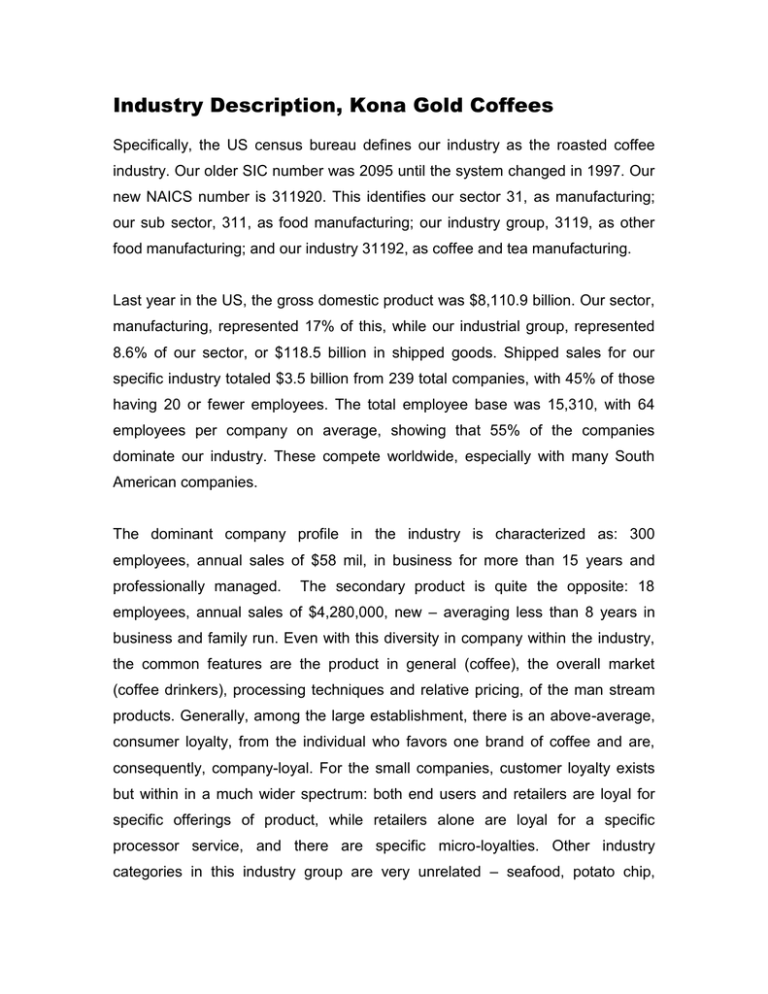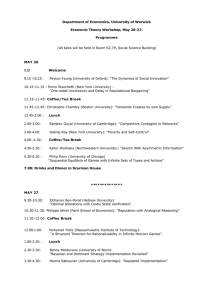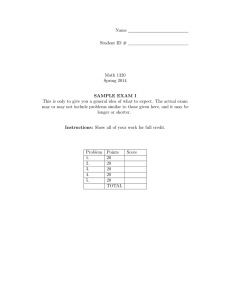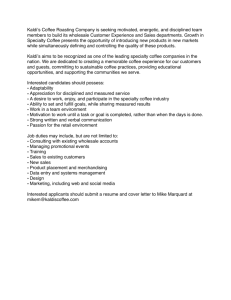Industry Description, Kona Gold Coffees
advertisement

Industry Description, Kona Gold Coffees Specifically, the US census bureau defines our industry as the roasted coffee industry. Our older SIC number was 2095 until the system changed in 1997. Our new NAICS number is 311920. This identifies our sector 31, as manufacturing; our sub sector, 311, as food manufacturing; our industry group, 3119, as other food manufacturing; and our industry 31192, as coffee and tea manufacturing. Last year in the US, the gross domestic product was $8,110.9 billion. Our sector, manufacturing, represented 17% of this, while our industrial group, represented 8.6% of our sector, or $118.5 billion in shipped goods. Shipped sales for our specific industry totaled $3.5 billion from 239 total companies, with 45% of those having 20 or fewer employees. The total employee base was 15,310, with 64 employees per company on average, showing that 55% of the companies dominate our industry. These compete worldwide, especially with many South American companies. The dominant company profile in the industry is characterized as: 300 employees, annual sales of $58 mil, in business for more than 15 years and professionally managed. The secondary product is quite the opposite: 18 employees, annual sales of $4,280,000, new – averaging less than 8 years in business and family run. Even with this diversity in company within the industry, the common features are the product in general (coffee), the overall market (coffee drinkers), processing techniques and relative pricing, of the man stream products. Generally, among the large establishment, there is an above-average, consumer loyalty, from the individual who favors one brand of coffee and are, consequently, company-loyal. For the small companies, customer loyalty exists but within in a much wider spectrum: both end users and retailers are loyal for specific offerings of product, while retailers alone are loyal for a specific processor service, and there are specific micro-loyalties. Other industry categories in this industry group are very unrelated – seafood, potato chip, manufacture ice, macaroni and spaghetti, and food preparation – and are not relevant to this report. The major change in the industry has been the wide spread increase in specialized retail coffee establishment, now numbering 15,000. According to the Specialty Coffee Association of America (SCAA), since 1985 the specialty coffee business has risen from a multi-million dollar industry to multy-billion dollar industry and is not likely to peak until the year 2015. While these are on the outskirts of the coffee manufacturing industry, they have become new focus customers for manufacturers and, because of the increasing trend of their end users, the overall demand for coffee manufacturing has increased on average 9 percent per year since 1996 an is expected to continue for many years to come.



